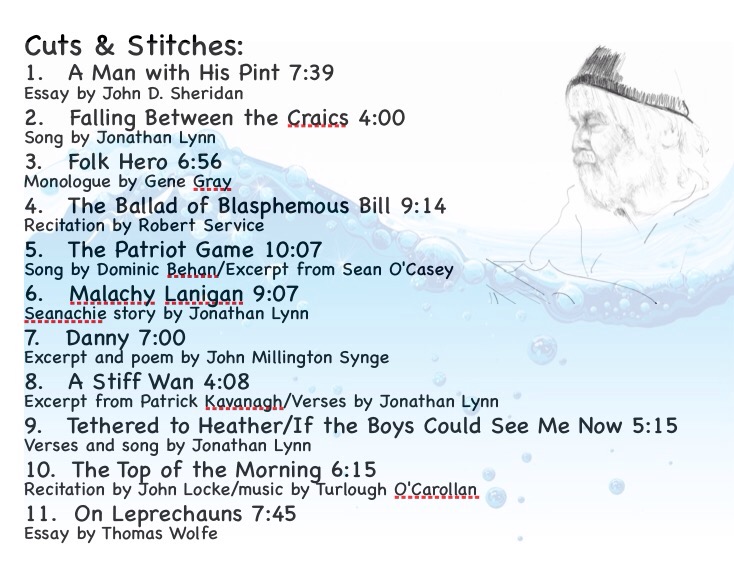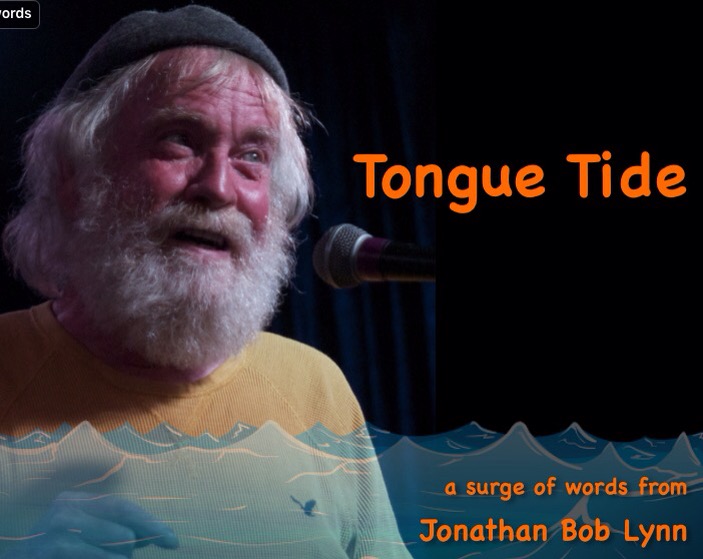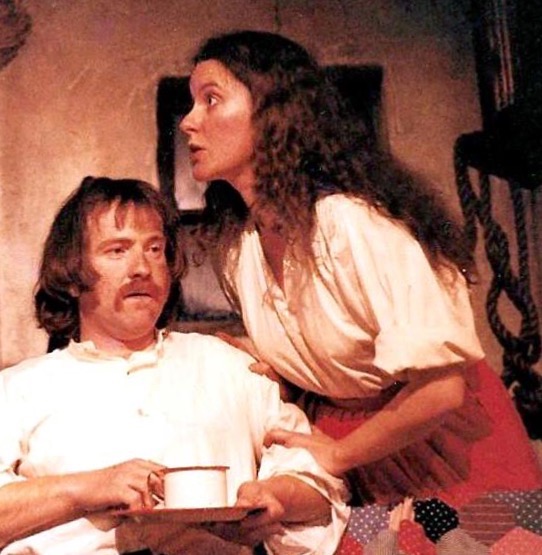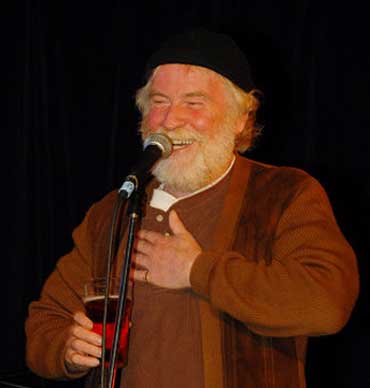With the help of Billy Heffernan, the expertise of Alec Fraser and the hospitality of Gate 403, I recently managed a recording on December 5th surrounded by supportive friends and the obligatory heckler or two.
Having brought the finished master to Australia with me, I decided to get some replicated here. Wound up doing the artwork myself on my erratic iPad and, after much tweaking and techno-frustration,here it is:

Most of the content is from the Gate 403 gig but I did include a couple of cuts from ‘The Blathering’, a DVD produced at a concert in Hugh’s Room a few years ago. I also included ‘The Top of the Morning’ from TIP Splinter’s ‘Shavings’ CD. The cover photo is by Michael Reynolds here in Melbourne and the drawing is by Helen Vella. As always, I have many friends to thank in the realization of Tongue Tide.
Thanks to Kevin Kennedy who joined me performing an excerpt from O’Casey’s ‘Shadow of a Gunman’ woven into Dominic Behan’s ‘Patriot Game’.
Glad I am now that I persuaded Ingrid Heming to record a scene from Synge’s ‘Playboy of the Western World’ last year for inclusion on Cut 7. Sadly we lost Ingrid this past summer. One last time I get to share the stage with this lovely lady.
Remembering that I promised to provide further info on the cuts in the liner notes of the CD, here goes.
A Man with his Pint. Essay by John D. Sheridan (1903-1980)
The best source of information on this author is available at www.irishpapist.blogspot.com. He wrote a weekly column in The Irish Independent newspaper and later published collections in books that are somewhat available at alibris.com. Famed Irish TV/Radio host Gay Byrne published a paperback collection of his favourites called ‘I Have Been Busy with Words’ available at amazon.com.
My father gave me my first collection, ‘I Can’t Help Laughing’ when I was ten and I read and re-read it with great delight. More than any other author, I perform Sheridan’s works and have never tired of his gentle humour and his nostalgia for simpler times in Ireland. I particularly enjoy this essay as it challenges the stereotypical image of us Irish and celebrates a reverential decorum about drinking. I could really rant about this. Take a moment and google St. Patrick’s Day T-shirts. It is intolerable that we are subjected to such stereotypical racism!
Falling Between the Craics. Song by Jonathan Lynn
The black pint of Guinness with the creamy head is affectionately known as ‘The blonde in the black dress’ and many Irish men have been seduced by her charms. I suspect my line “Cock-o-the-walking down cul-de-sacs” was prompted by John Prine’s great line in ‘Illegal Smile’: “Chased a rainbow down a one-way street; dead end”.
The Irish word ‘craic’ simply means good times but, when placed in a question such as ‘How’s the craic’ or ‘What’s the craic’, can also mean ‘what’s happening, what’s the news?’ The word is originally North English/Scottish. It was adopted into Irish vernacular in the 60’s and gained popularity with Ronnie Drew’s (The Dubliners) spoken introduction to ‘McAlpine’s Fusiliers’ by Dominic Behan – ‘The craic was good in Cricklewood and there was murder down in The Crown with bottles flying and Biddys crying, counters cracking and barmen jacking, the Paddies were coming to town’. Ronnie’s recitation continues: ‘O mother dear I’m over here and I’m never going back etc’ which I borrow for my song.
Hey, here’s an extra verse to McAlpines that I used to sing:
“It came to pass we should go to mass on the Immaculate Conception
The Galway foreman he did rage and gave us a terrible reception
Get down them sewers ye Kerry whores and never mind yer prayers
For your only god is a well-filled hod with McAlpines fusiliers.”
Folk Hero. Monologue by Gene Gray.
I was surprised when I first went to Newfoundland as a musician in March 1969 that they spoke with an Irish accent. I learned that their ancestors had been fishermen from Wexford and Waterford who had tired of sailing the Atlantic to plunder the rich fishing grounds of the Grand Banks and had settled on Newfoundland’s southern shore in the 1700s.(Google ‘The Shores of Newfoundland’ by TIP Splinter on Youtube for Kieran Wade’s fine song. Yeah, that’s a much younger me playing Hammer Dulcimer.) In some ways Newfoundlanders are more Irish than the Irish themselves. This may be because, unlike Irish people in Ireland, they had never experienced the famine years of the 1840s that decimated Ireland and changed forever our attitude to the land, the constancy of family, trust in God etc. Feeling that I had come home, I fell in love with the place and the people and almost settled there. Many of my Irish musical friends did and are there to this day.
The Ballad of Blasphemous Bill. Recitation by Robert Service(1874-1958)
Condemned in his lifetime for writing doggerel, Service himself did not call his work poetry. “Verse, not poetry, is what I was after … something the man in the street would take notice of and the sweet old lady would paste in her album; something the schoolboy would spout and the fellow in the pub would quote”. They did, I do and Robert Service was the most commercially successful poet of the 20th Century.
‘Poetry is potency’ they say. Paring away words until only the distilled, essential bones remain isn’t my nature and, so, I have never written poetry. Seems to me it is against the Irish nature that delights more in the embellishment and ornamentation of language. Surprisingly then, Ireland has produced two of the greatest poets of the 20th century: W.B. Yeats and Seamus Heaney.
‘Blasphemous Bill’ is a good example of what material I choose to perform. I always ask myself “Who is telling the story?” In this instance, it is obviously not me who would brave the frozen north. This allows me to assume a character and play a part, a defence mechanism, which is much easier than being myself.
The Patriot Game. Dominic Behan (1928-1989)
Excerpt from ‘Shadow of a Gunman’. Sean O’Casey(1880-1964)
Apologies that the incorporation of ‘Shadow’ excerpts resulted in selectively using verses of Behan’s great song. Dominic, younger brother of the more renowned Brendan, does not get the credit he deserves. Even a quick glance back at the Irish Folk Revival of the 60’s reminds us that it was Dominic Behan who wrote three of its iconic songs: The Patriot Game, McAlpines’s Fusiliers and Liverpool Lou. Only the songwriting of Ewan MacColl shines brighter.
O’Casey has always delighted me and I keep on discovering new information on this great playwright. Only recently found out that he played the Uilleann Pipes, togged out and played hurling and that there is a movie version of his play ‘Juno and the Paycock’ directed by Alfred Hitchcock.
We all know it ought to be ‘Peacock’. What is it about us Irish that turns the ‘e’ sound into ‘a’? Why is Brendan Behan’s play called ‘The Quare Fella’? Why is it ‘The French are on the say(not sea) says the Sean Bhean Bhocht’? There is a recitation I occasionally do about Yankee dollars being enclosed in letters home that has the line ‘They put meat upon the table and a stay from yellow meal’. I cannot bring myself to say with it with any authenticity unless I pronounce it ‘They put mate upon the table and a stay from yella male’. In Malachy Lanigan I describe a poor place as ‘You’d have to be sending in to the county town to buy a stick to bate(beat) the dog’.
Has it something to do with our Gaelic language? There I’ll lave yeh!
Malachy Lanigan. Seanachie story by Jonathan Lynn
As a child I helped my father, Bob Lynn, to rehearse his lines for plays that he was acting in Amateur Theatricals in Kilkenny. When then I attended opening night performance and was thrilled to watch the written words springing to life on stage, I was hooked on the magic of words.
My mother, Pearl Slye, was from the village of Shinrone in County Offaly and, among her many talents, she quoted Shakespeare endlessly if unknowingly. So, here’s a sample of her speech which is typical of the Irish midlands:
To tell the truth and shame the Devil*, I only heard of yer man Shakespeare once; that was from an aul school-teacher. What the dickens*is his name? Oh, a fella who loved to hear himself talk*– sure, what’s in a name?* Many a time and oft* he’d come over to our house of an evenin’ and I’d be dancing attendance*on him. He’d be as happy as the day was long* harpin’ on*about yer man Shakespeare, layin’ it on with a trowel*. Sure, ye couldn’t get a word in edgeways*. Give the divil his due*, he knew his stuff alright but what do the likes of me want with Shakespeare? I was never so bethumped with words* but, sure, ‘twas all Greek to me*. He had a charmed life*but, the short and the long of it* was, I thought it was too much of a good thing*. Sure, he was eating us outa house and home!* Couldn’t get him to budge an inch*. “The game is up”*ses I and waited with bated breath*. Not a word out of him; not one to throw at a dog*. As luck would have it*, he leaves. Good riddance*. Sure, ‘twas a foregone conclusion*. Parting is such sweet sorrow* Humph! Oh, method in my madness* alright. Shakespeare! Neither rhyme nor reason to it* if ye ask me but, sure, that’s neither here nor there.*
(In disavowing Shakespeare she quotes him 27 times)
Excerpt from Playboy of the Western World/Danny. John Millington Synge (1871-1909)
Irish audiences rioted in 1907 at the premiere performance of Synge’s play. Little wonder as, in this excerpt from the very first scene, he seems to glorify the sheep-fucking Marcus Quinn! And don’t think it was just the prudery of the Irish of the time either for, when the play was presented four years later in Philadelphia, the cast was arrested and charged with putting on an immoral performance. Synge dared to be blasphemous at a time when, in the words of James Joyce, we Irish were “a priest-ridden, Godforsaken race”.
Imagine the upset caused by illegitimacy in a rural society of ‘two pair of female twins’. But It gets worse: Danny strikes the parish priest. Twice! Synge based most of his work from stories heard in The Aran Islands from a peasant people whose Hiberno-English captivated him and through whose Christianity, ancient paganism bubbled and burst.
Ingrid as Pegeen Mike and myself as Christy Mahon in Toronto Irish Players’ production of Playboy in 1982.
A Stiff Wan. Excerpt from ‘The Great Hunger'(1942). Patrick Kavanagh (1904-1967)
Best known as author of ‘Raglan Road’ and ‘Tarry Flynn’, Kavanagh came from the farming fields of Monaghan. I wrote the fun verses that follow and, as I discover the superior writing of others, it is one of the few original pieces in my repertoire. No doubt, by now you have me pegged as a terrible name-dropper having tucked the names of both Shakespeare and James Joyce in above. I’ll insist it’s out of admiration. So, watching a recent episode of Downton Abbey and hearing Hugh Bonneville say “You’re a better man than I am Gunga Din” reminds me that Rudyard Kipling’s poem is on my list of things to learn. Listening to John Lennon’s song ‘Nobody Told Me’ where he borrows a line reminds me that ‘The Green Eye of the Little Yellow God’ has been on my list since I heard it from my friend Brian O’Callaghan’s Mom Rosaleen 50 years ago. One last name to drop, Gwyn Thomas from the Rhondda Valley in Wales. Great writing in his novel ‘Leaves in the Wind’ from which an excerpt is a work in progress. Likely, I’ll never get around to memorizing any and even more likely that I’ll grow too old to perform them. At which time I’m comforted by the conviction that I’ll return to the joy of writing.
Oops! Got a bit carried away with the name-dropping and forgot that some clarifications are required.
‘Packet of Sweet Afton’ refers to a cigarette brand. ‘Tune to Luxembourgh at 208’ refers to the only radio station that played pop music in my youth and was found at 208 on the dial.
Tethered to Heather/If the Boys Could See Me Now. Words and music by Jonathan Lynn.
While the heart continues to enjoy it’s monopoly on songs of love, the tradition in folk music of songs of lust and passion has been somewhat neglected. Not completely however when we recall The Dubliners success in 1968, though banned by BBC, reaching #43 on the British Charts with ‘Maids when you’re Young never wed an Old Man’. And let’s not forget that the Saw Doctors raunchy ‘I Used to Love Her’ (1990) still holds the record as Ireland’s best-selling single of all time. ‘Isobel Makes Love upon National Monuments’ and ‘Bantam Cock’ shine too from the brilliance of the late Jake Thackray(1938-2002). If I do nothing else but introduce you to the mighty Jake, I will have accomplished something. I am in awe of Jake’s skill at rhyme. But I do content myself with occasionally coming up with triple-rhyme like: ‘Sexual promis-cu-it-y, long over-due-it-e-rupted on my adolescence, taught me lessons, turned on de-light.’ And how’s this for a quad: ‘Up in the flats of Mon-te-not-te, wan-ton, naught-y University students practice prudence weekdays nine-to-five.’ As ever, I will readily sacrifice truth or meaning on the altar of rhyme and/or wordplay.
I confess to this lined page I’m written to the core
The nib I dip in penmanship’s no sweat, just ink does pour
And the height of my season is rhyme without reason
Each phrase gets turned on a lathe
Then, from a three-legged stool, I rise like a fool
Song title, one word: Charade!
The Top of the Morning John Locke 1874-1889
Blind Mary Turlough O’Carolan 1670-1738
I’d like to think that poetry once enjoyed such power and popularity that a phrase from a poem could become part of the vernacular-The Top of the Morning. The poem is often called ‘The Exile’s Return’ and a measure of its popularity is that it was recited by President Ronnie Reagan when he visited Ireland in 1984. John Locke is still remembered in Callan, County Kilkenny, and the local GAA club is called The John Locke’s as he was a fine hurler. Google O’Carolan for a wealth of information on Ireland’s celebrated harpist.
‘And doesn’t auld Cobh look charming there watching the wild waves motion, leaning her back up against those hills with the tips of her toes in the ocean.’ Cobh, County Cork, formerly known as Queenstown was the last port of call for the Titanic. It was the point of departure for thousands of Irish emigrants but the one I remember is a little girl leaving with her family in the 50’s – Madeleine O’Loghlin. Her photo appeared in the local newspaper and, many years later, she sang sad songs of home with TIP Splinter. Mad and I were founding members and I was the only one there from beginning to end. Throughout, surrounded by great musicians, I always felt I was holding them back as I struggled to contribute. Sometimes now, when I enjoy a good reception for a story, I fleetingly think maybe it was they who held me back?
On Leprechauns Thomas Wolfe 1900-1938
I only happened upon this author when, reading the fly-leaf, I discovered he and I shared a birthday, Oct 3rd. I bought ‘Look Homeword, Angel’ and have enjoyed his celebration of language ever since. This essay is taken from his short story collection ‘The Hills Beyond’. It is a good example of the material I choose to perform in that it shifts direction. Just when it has you chuckling along, his humour turns to anger and, almost embarrassed that you tittered, you’re hanging on for dear life on an raging roller-coaster of emotion. I realized a long time ago that, so long as the typical venue for my story-telling was to be noisy pubs, I must rely on humour to gain listeners. Consequently, most of the meatier material, words with teeth in them, rarely gets an airing. I hope I’ve entertained you but ought to be more thought-provoking and would do well to remember and close with Wolfe’s caution: ‘He who lets himself be whored by fashion, will be whored by time’.


